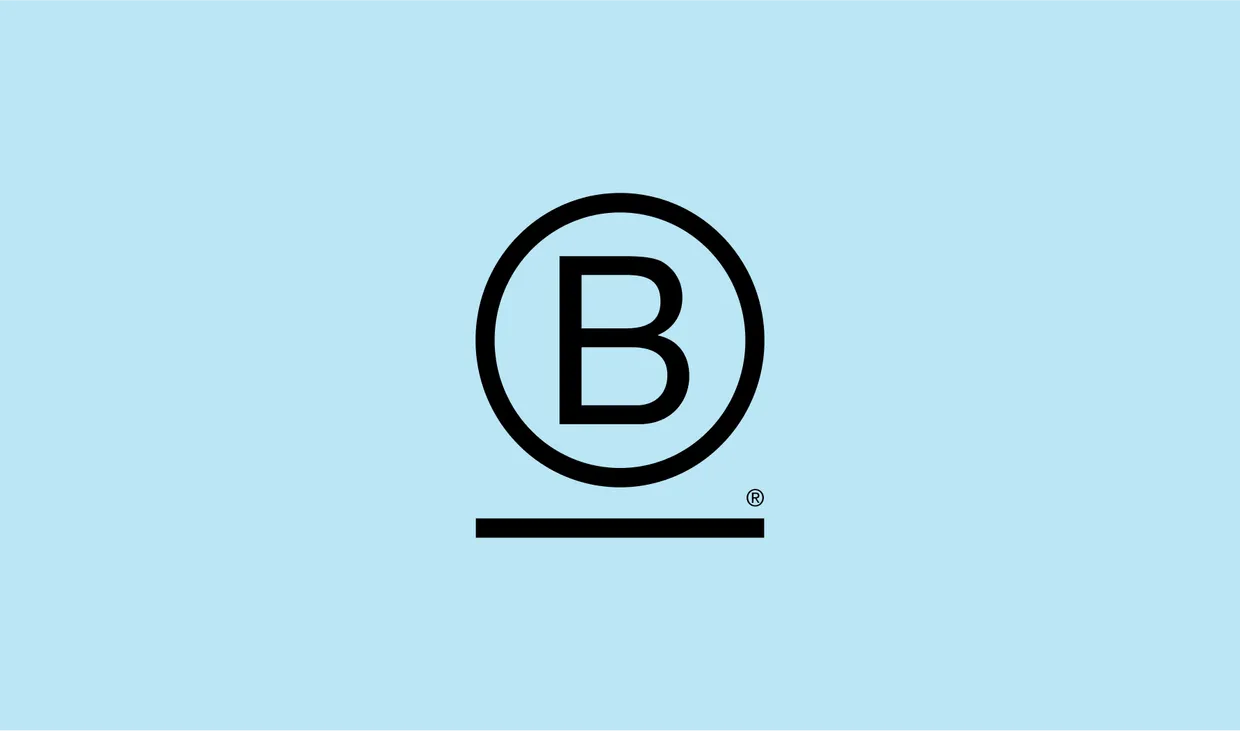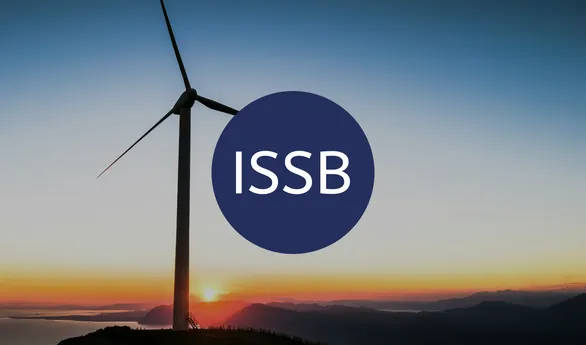As the demand for transparency and accountability in business grows, more companies are exploring how to turn purpose into action. B Corp Certification offers a structured and credible path to demonstrate that commitment.
With B Lab Global introducing the most significant update to its certification process in nearly two decades, it’s a pivotal time for businesses to understand what’s changing, why it matters, and how to move forward.
The new standards elevate expectations, offering companies not only a clearer path to compliance but also a renewed opportunity to drive positive impact across people, planet, and profit while fostering responsible business practices . This post covers the evolution of the standards, the new requirements, and how companies can prepare to meet them—and thrive.
What is B Corp?
B Corp stands for Benefit Corporation, a certification awarded by B Lab Global to businesses that meet high standards of social and environmental performance, transparency, and accountability.
Unlike traditional benefit corporations, Certified B Corps consider the impact of their decisions on all stakeholders—not just shareholders. That includes employees, communities, customers, suppliers, and the environment, as well as other and future generations.
It’s important to note that B Corp Certification is distinct from adopting a benefit corporation legal structure, although many businesses pursue both.
The B Corp movement began in 2006, when B Lab was founded on the belief that a different kind of economy was not only possible, but necessary. In response to rising environmental degradation and social inequality, B Lab introduced the idea that business could be a powerful force for good—if held to comprehensive, credible, and comparable standards. These standards were designed to support economic systems change by encouraging companies to operate with greater accountability and transparency.
At its core, the B Corp movement is about redefining success in business. It aims to create an inclusive, equitable, and regenerative economy by building a global movement of companies that use business as a force for good, creating a robust global network. The B Corp community continues to grow, uniting businesses of all types and company sizes to create lasting change.
Today, being B Corp certified is more than a mark of quality—it’s a public declaration of intent and a commitment to continuous improvement, innovation, and impact.
An overview of the B Corp standards
Since its inception, B Lab’s standards have continuously evolved. These standards serve as a third-party standard to verify that companies meet rigorous criteria for environmental performance, labor practices, corporate governance, community engagement, and customer impact.
Historically, the B Corp Certification process has been points-based: companies needed to achieve a minimum score of at least 80 out of 200 on the B Impact Assessment, which measures a company’s performance across key impact areas. This impact score allowed flexibility, but it also led to some inconsistencies in how companies met the bar, especially considering their supply chain practices .
Now, with the seventh iteration of the standards, B Lab Global is moving toward a more holistic and requirement-based model. This approach aims to ensure that all Certified B Corps make meaningful progress across the most pressing impact areas facing our world today, particularly in the context of an emerging economy.
What are the new B Corp standards?
Unveiled on April 8, 2025, the new standards represent a foundational shift. Developed through a multi-year consultation process involving 26,000 pieces of feedback, the changes are designed to better align B Corps with today’s urgent social and environmental priorities.
Under the new framework, companies must meet defined performance requirements across seven core Impact Topics:
1. Purpose & stakeholder governance
Certified B corporations must act in accordance with a defined purpose and embed stakeholder governance into their decision-making. This includes creating governance structures to monitor purpose, social, and environmental performance, which includes involving board members in the decision-making process.
2. Climate action
All companies must develop action plans aligned with limiting global warming to 1.5°C. Larger companies are required to disclose GHG emissions and adopt science-based targets validated by credible organizations like the SBTi.
3. Human rights
Businesses must understand how their operations and value chains may contribute to human rights violations and take actions to prevent or mitigate those risks – including implementing the appropriate safety practices.
4. Fair work
This involves offering quality jobs, adopting fair wage practices, maintaining positive workplace culture, and enabling employee voice in decision-making.
5. Environmental stewardship & circularity
Companies must assess their environmental impacts and take meaningful action to minimize harm through responsible resource use and waste reduction.
6. Justice, equity, diversity & inclusion (JEDI)
Organizations must foster inclusive and diverse workplaces while contributing to just and equitable communities.
7. Government affairs & collective action
Businesses are expected to engage in advocacy that promotes positive impact, support systems change, and—if large—disclose tax reporting data by country.
What do companies need to do to comply with the new standards?
Unlike the flexible point-based system of the past, the new model outlines baseline expectations in each Impact Topic. Companies must:
- Implement policy and process changes to align with new requirements
- Submit performance data using the updated B Impact Assessment platform
- Provide documentation and proof for third-party verification
- Commit to continuous improvement, with progress check-ins at 3 and 5 years
This framework aims to enhance consistency, transparency, and credibility across B Corp profiles globally. It also ensures that businesses of any company size—from startups to multinational corporations—are held to consistent and high-impact standards.
A note on the B Assessment
The B Impact Assessment is the central tool used to measure and improve a company’s impact. With the introduction of the new standards, the platform has been updated to include:
- The new topic-based requirements
- An enhanced disclosure questionnaire
- Better integration with other reporting frameworks (e.g., GRI, CDP, and SBTi)
The impact assessment is not just a means to B Corp Certification—it’s a tool for continuous learning and improvement. Many companies use it long before pursuing certification to benchmark performance and identify areas for growth.
Note that every company must post its score on the B Corp Directory, sharing their specific score in different areas.
Becoming a B Corp
The B Corp certification process involves several key steps:
- Completing the B Impact Assessment
- Submitting the disclosure questionnaire
- Providing supporting documentation
- Undergoing a rigorous review and verification process
- Meeting the legal requirement, which often includes adopting the benefit corporation status legally
- Publishing an impact report
Analysts from B Lab Global review the details of your entire assessment, as well as looking at your company structure and considering any controversial industries.
Companies verified by B Lab then join a global movement of almost 10,000 Certified B Corporations operating in more than 100 countries. The B Corp community spans the global business landscape—from sole proprietors to publicly traded companies. While the majority of B Corps are small to medium-sized businesses, an increasing number of large enterprises are also getting involved.
Maintaining B Corp status (note that companies need to re-certify annually) requires ongoing compliance, reporting, and improvement. Whether a company is large or small, joining the B Corp community means committing to higher standards and contributing to a more equitable global economy.
If you’re considering certification, download the B Corp Guide from Sweep, a practical resource to help companies measure environmental impact for B Corp certification.
The benefits of being a B Corp
The value of becoming a B Corp goes far beyond the badge. It’s a strategic move that can:
1. Attract customers and talent
Today’s consumers and employees are values-driven. Having B Corp status signals a company’s commitment to doing business responsibly and ethically, which helps build trust. Consumers increasingly recognize the B Corp logo as a sign of corporate responsibility
2. Increase operational resilience
By focusing on long-term stakeholder value, B Corps tend to be more resilient in the face of economic, social, and environmental shifts. This resilience creates benefit for the company and supports other and future generations.
3. Build investor confidence
Investors increasingly look for credible ESG indicators. B Corp Certification, built on a third-party standard, can help companies stand out.
4. Support regulatory readiness
Because the standards align with frameworks like GRI, CDP, and the SBTi, companies are better positioned to meet evolving reporting and compliance requirements.
5. Create systemic impact
Being a B Corp means joining a widespread movement of businesses working collectively to create a better future that maximizes each company’s impact for current and future generations. Through advocacy and collaboration, these companies help shape policy and shift industry norms.
6. Unlock business opportunity
Aligning purpose and profit allows companies to innovate, grow their market, and forge stronger stakeholder relationships. Certified B Corps are increasingly recognized in procurement processes, public tenders, and funding applications.
On a mission to create better business
The new B Corp standards are more than a regulatory update—they’re a call to action. They challenge businesses to raise the bar and prove that they can thrive while creating meaningful, measurable value for people and the planet.
For companies looking to achieve and maintain certification, the path is clear. Now is the time to lean into purpose, engage your teams, and consider how the B Corp certification process can help your business grow stronger, more resilient, and more aligned with the needs of today—and tomorrow.
Whether you’re just getting started or already B Corp certified, these new standards are a fresh opportunity to elevate your work and help create an economy that works for everyone.
For further information, visit the official B Corp website.




